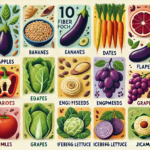10 Proven Strategies to Combat Pregnancy Acidity
Discover effective ways to alleviate pregnancy acidity with these 10 proven strategies for a comfortable journey.

Introduction
Overview of Pregnancy Acidity and Its Causes
Pregnant women commonly experience pregnancy acidity, also known as heartburn or acid reflux. It occurs when stomach acid flows back into the esophagus, causing a burning sensation in the chest and throat. Hormonal changes during pregnancy primarily cause this condition by relaxing the lower esophageal sphincter and putting pressure on the stomach.
Importance of Managing Acidity During Pregnancy
Acidity management during pregnancy is essential for mother and baby comfort. Uncontrolled acidity can lead to discomfort, disrupted sleep, and decreased appetite, which can affect overall health. By adopting effective strategies to manage acidity, pregnant women can enjoy a more comfortable and healthy pregnancy.
Brief Mention of the 10 Proven Strategies to Alleviate Pregnancy Acidity
In this article, we will explore 10 proven strategies to alleviate pregnancy acidity, including eating smaller, frequent meals, avoiding trigger foods, staying upright after eating, drinking plenty of water, chewing gum, wearing loose-fitting clothing, elevating your head while sleeping, avoiding caffeine and carbonated drinks, practicing relaxation techniques, and consulting your healthcare provider.
Read also: “Top 10 Fiber – Rich Foods A to Z for Health”

Strategy 1: Eat Smaller, more Meals
Explanation of How Smaller Meals Help Reduce Acidity
Eating smaller, frequent meals helps reduce acidity by preventing the stomach from becoming too full, which can increase pressure on the lower esophageal sphincter and cause acid reflux. Smaller meals are easier to digest and can help maintain stable blood sugar levels.
Tips for Planning and Preparing Smaller Meals
- Plan your meals and snacks ahead of time to ensure you have healthy options available.
- Include a balance of protein, healthy fats, and complex carbohydrates in each meal.
- Avoid overeating by using smaller plates and paying attention to portion sizes.
Strategy 2: Avoid Trigger Foods
List of Common Trigger Foods (Spicy, Fatty, and Acidic Foods)
Common trigger foods that can exacerbate acidity include spicy foods, fatty foods, acidic foods (such as citrus fruits and tomatoes), chocolate, caffeine, and carbonated drinks.
Tips for Identifying and Avoiding Personal Trigger Foods
- Keep a food diary to track what you eat and any symptoms you experience.
- Identify patterns and avoid foods that consistently trigger acidity.
- Experiment with different foods to find alternatives that do not cause discomfort.

Strategy 3: Stay Upright After Eating
Explanation of How Staying Upright Helps Prevent Acid Reflux
Staying upright after eating helps prevent acid reflux by allowing gravity to keep stomach acid in the stomach. Lying down or reclining can cause stomach acid to flow back into the esophagus, leading to heartburn.
Tips for Maintaining an Upright Position After Meals
- Avoid lying down or reclining for at least 30 minutes after eating.
- Take a gentle walk after meals to aid digestion.
- Use pillows or cushions to prop yourself up if you need to rest.

Strategy 4: Drink Plenty of Water
Importance of Staying Hydrated During Pregnancy
Staying hydrated during pregnancy is essential for overall health and can help reduce acidity. Drinking water helps dilute stomach acid and aids in digestion.
Tips for Incorporating More Water into Your Daily Routine
- Carry a water bottle with you and sip water throughout the day.
- Set reminders to drink water regularly.
- Infuse water with fruits or herbs for added flavor and variety.
Strategy 5: Chew Gum
Explanation of How Chewing Gum Can Help Reduce Acidity
Chewing gum stimulates saliva production, which can help neutralize stomach acid and reduce acidity. The act of chewing also promotes swallowing, which helps clear acid from the esophagus.
Tips for Choosing the Right Type of Gum
- Choose sugar-free gum to avoid excess sugar intake.
- Look for gum with natural flavors and ingredients.
- Avoid mint-flavored gum, as mint can relax the lower esophageal sphincter and worsen acidity.
Strategy 6: Wear Loose-Fitting Clothing
Explanation of How Tight Clothing Can Exacerbate Acidity
Tight clothing, especially around the waist and abdomen, can put pressure on the stomach and lower esophageal sphincter, leading to acid reflux and discomfort.
Tips for Choosing Comfortable, Loose-Fitting Maternity Wear
- Choose maternity clothes that can fit your expanding belly.
- Choose fabrics that are breathable and stretchy for added comfort.
- Avoid belts and tight waistbands that can constrict the abdomen.
Strategy 7: Elevate Your Head While Sleeping
Explanation of How Elevating Your Head Can Prevent Nighttime Acid Reflux
Elevating your head while sleeping helps prevent nighttime acid reflux by using gravity to keep stomach acid in the stomach. This can reduce the likelihood of waking up with heartburn.
Tips for Using Pillows or Wedges to Elevate Your Head
- Use a wedge pillow or elevate the head of your bed with blocks or risers.
- Arrange pillows to create a comfortable incline that supports your upper body.
- Avoid stacking multiple pillows, as this can cause neck and back strain.
Strategy 8: Avoid Caffeine and Carbonated Drinks
Explanation of How Caffeine and Carbonated Drinks Can Increase Acidity
Caffeine and carbonated drinks can increase acidity by relaxing the lower esophageal sphincter, allowing stomach acid to flow back into the esophagus. Additionally, carbonated drinks can cause bloating and increase pressure on the stomach, exacerbating acid reflux symptoms.
Tips for Finding Suitable Alternatives
- Opt for herbal teas, such as chamomile or ginger tea, which can help soothe the stomach.
- Drink water infused with fruits or herbs for added flavor without the acidity.
- Choose non-caffeinated beverages like milk or natural fruit juices.
Strategy 9: Practice Relaxation Techniques
Explanation of How Stress Can Contribute to Acidity
Stress can contribute to acidity by increasing stomach acid production and causing the lower esophageal sphincter to relax. This can lead to more frequent and severe acid reflux episodes.
Tips for Incorporating Relaxation Techniques into Your Daily Routine
- Practice deep breathing exercises to help calm the mind and reduce stress.
- Engage in gentle activities like yoga or meditation to promote relaxation.
- Set aside time each day for activities you enjoy, such as reading or taking a walk.
Strategy 10: Consult Your Healthcare Provider
Importance of Seeking Professional Advice for Managing Pregnancy Acidity
Consulting your healthcare provider is crucial for managing pregnancy acidity, as they can provide personalized advice and recommend safe treatment options. They can also identified underlying causes of your symptoms.
Tips for Discussing Symptoms and Treatment Options with Your Healthcare Provider
- Keep a diary of your symptoms, including frequency and diet.
- Be open and honest about your discomfort and any concerns you have.
- Ask about safe medications or remedies that can help alleviate your symptoms.
Conclusion
Recap of the 10 Proven Strategies to Fight Pregnancy Acidity
- Eat Smaller, Frequent Meals
- Avoid Trigger Foods
- Stay Upright After Eating
- Drink Plenty of Water
- Chew Gum
- Wear Loose-Fitting Clothing
- Elevate Your Head While Sleeping
- Avoid Caffeine and Carbonated Drinks
- Practice Relaxation Techniques
- Consult Your Healthcare Provider
Encouragement to Implement These Strategies for a Comfortable Pregnancy
Implementing these strategies can help you manage pregnancy acidity and enjoy a more comfortable and healthy pregnancy. By making small changes to your diet and lifestyle, you can reduce the frequency and severity of acid reflux symptoms.
Final Thoughts on the Importance of Managing Acidity During Pregnancy
Pregnancy acidity management is crucial for mother and child. By adopting effective strategies and seeking professional advice, you can alleviate discomfort and promote a healthier pregnancy. Every pregnancy is different, so find what works for you and your body.





Pingback: How Acidity Destroys Your Sleep: 8 Surprising Facts - Digital Nest
Pingback: How Acidity Destroys Your Sleep: 8 Surprising Facts - "Wellness Wisdom"